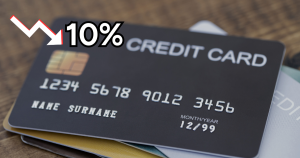Hero Images Inc/Getty Images
Key takeaways
- Cash management accounts often combine savings and checking account features, while money market funds offer ultra low-risk returns.
- You open a cash management account and use it like a checking or savings account. You buy shares in a money market fund.
- Look at each account’s features and fees before deciding which is right for you.
If you’re looking to put your cash in a financial institution, you might be considering a cash management account or money market funds. Both offer some advantages for those looking to earn interest or otherwise keep a ready supply of cash on hand. But which is better for you?
Here are some key advantages and disadvantages of cash management accounts and money market funds and how they compare.
Cash management account vs. money market fund
| Cash management account | Money market fund | |
| Basics | An account offered by brokerages that’s similar to a checking or savings account | A fund offered by banks and brokerages that you can buy shares in |
| Yield | Competitive interest rates, often 3-5 percent, paid by the broker | Varies but roughly 4 percent from short-term debt securities |
| Fees | None | Expense ratios, 0.22 on average |
How cash management accounts work
A cash management account is an account typically offered at non-bank financial institutions, such as brokerage firms and robo-advisors. This type of account is an alternative to a traditional checking or savings account, and it combines features of both into a practical account that lets you spend with a debit card or pay bills and still earn a potentially attractive level of interest, too.
Often, money in cash management accounts is swept to the financial institution’s partner bank, where it can earn interest for you and enjoy the full protection of the FDIC. Some institutions — such as the best robo-advisors — give you millions in FDIC protection.
The best cash management accounts offer a lot of features such as:
- A checking account with debit card
- No fees, including no overdraft fees and no monthly fees
- Early paycheck direct deposit
- A competitive interest rate on your cash balance
- Fee-free ATMs
- “Round-up” investing on your spending
How money market funds work
In contrast, a money market fund is a kind of savings option available at many banks and brokerages. You buy shares in the fund like you would any other fund. Also known as money market mutual funds, these funds are low-risk investments that can pay an attractive interest rate you won’t have to endure market volatility to get.
Money market funds are required by law to invest in short-term debt securities such as certificates of deposit, U.S. Treasury bills and short-term corporate debt known as commercial paper. The weighted average maturity of a money market fund’s holdings must be 60 days or less. This requirement keeps money market funds liquid and accessible as a short-term investment.
The funds charge an expense ratio, which is a fee based on the amount of money invested in the fund. The fee averaged about 0.22 percent in 2024, according to the Investment Company Institute. In other words, that would cost $22 annually for every $10,000 you have invested in the fund — not steep, but not free, either.
Money market funds typically have a share price of $1, though in extreme market dislocations, shares sometimes fall below that price.
Pros and cons of cash management accounts
Pros
- Interest-bearing: Cash management accounts often offer interest on your cash balance, and in some cases, an especially competitive rate.
- FDIC protection: If the cash management account sweeps your balance to a partner bank insured by the FDIC, then your cash is protected by the FDIC. Some accounts let you hold millions of dollars all under the safety of FDIC protection.
- Easy to move to or from an investment: Since cash management accounts are often tied to robo-advisor or brokerage accounts, it’s a “staging ground” for money going to or coming from your investment account.
- Spending and savings account: The best cash management accounts give you many features of checking and savings accounts, plus some bonus features such as fee-free ATMs and early paycheck direct deposit.
Cons
- Interest rates may not be competitive: While some of the best cash management accounts offer highly competitive rates, not all do.
- May not have some features: Some of the extra features of the best cash management accounts may not be offered with all accounts. For example, debit cards may come with one firm’s account but not another’s.
- Minimum balances: Some cash management accounts may require a minimum balance or may require a minimum balance before you start earning interest.
- May be online-only: Some cash management accounts may only be available through an online financial institution.
Pros and cons of money market funds
Pros
- Interest-earning funds: Money market funds can earn an attractive interest rate, but you’ll need to understand exactly what you’re buying and what it’s paying. Rates change as the prevailing interest rate rises or falls.
- Low-risk: Money market funds are low risk, but that doesn’t mean no risk.
- Highly liquid: Money market funds own highly liquid investments. You can buy and sell them easily on any day the market is open.
- Better for short-term money: Money market funds are better for short-term money, such as an emergency fund, that you may need to access on short notice.
Cons
- Inflation risk: The interest they pay may not outpace inflation.
- Not good for long-term money: Given their minimal returns, money market funds are not attractive for long-term money, such as a retirement account. A well-diversified portfolio of stocks has tended to vastly outpace inflation over time.
- Not FDIC-insured: Money market funds are not protected by the FDIC, so your principal is not guaranteed. While loss has been rare, it can happen.
- Expense ratios: You’ll need to pay a small percentage of your principal to the fund management company as an expense ratio. The fee varies from fund to fund.
Cash management accounts vs. money market funds — which is better?
Which account is better — a cash management account or money market fund — depends on your individual financial needs.
If you’re looking for a comprehensive account that can let you save and spend, then a cash management account may be the better option.
But a money market fund may be a better option when you’re just looking for an attractive return, especially if you’re holding cash in a brokerage account.
If you’re not sure, ask yourself:
- Do I plan to take frequent withdrawals from my account?
- Do I want FDIC protection?
- Do I want to keep most of my money in cash or investments?
- Which account will give me the better return?
Bottom line
Your individual financial situation plays a huge role in which option may be better for you. You’ll need to look around and see what financial institutions are offering, since cash management accounts can differ markedly from one to another. And if you’re looking to buy a money market fund, you’ll want to understand its key features, including its return and expense ratio.
— Maurie Backman contributed to an update.
Editorial Disclaimer: All investors are advised to conduct their own independent research into investment strategies before making an investment decision. In addition, investors are advised that past investment product performance is no guarantee of future price appreciation.
Why we ask for feedback
Your feedback helps us improve our content and services. It takes less than a minute to
complete.
Your responses are anonymous and will only be used for improving our website.
Help us improve our content
Read the full article here












